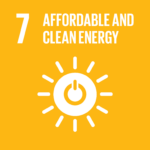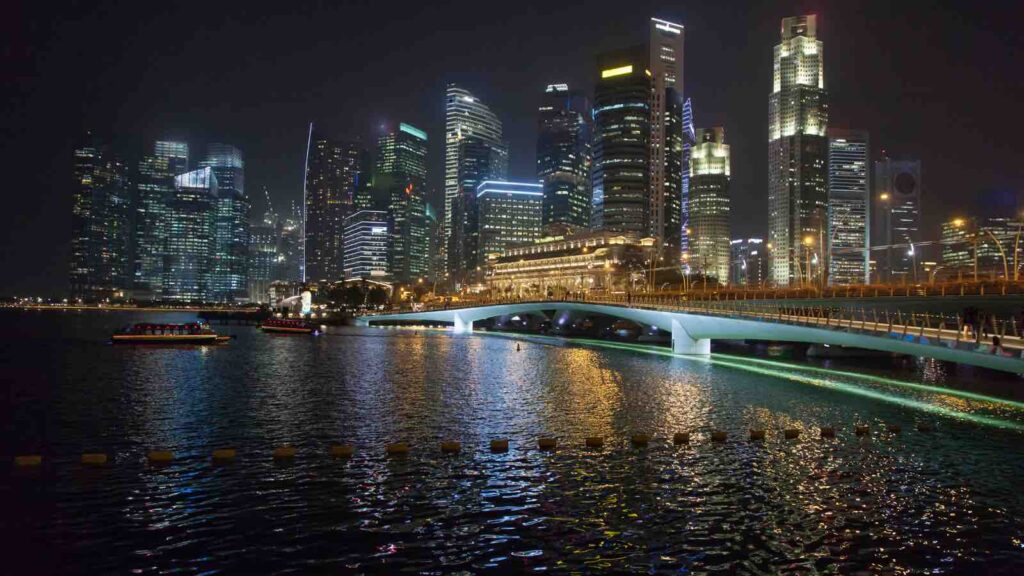As part of the Green Data Centre Roadmap, a new effort to develop sustainable data centres that the city-state, Singapore, launched on Thursday (May 30).
SINGAPORE — As an island city-state with limited natural resources, Singapore has long embraced technological innovation as vital to its economic survival. Now it is making a strategic wager that prioritizing sustainable data centers could cement its status as a global digital hub.
RELEVANT SUSTAINABLE GOALS



On Thursday (May 30), the city-state unveiled an ambitious Green Data Center Roadmap that plans to add at least 300 megawatts of new data center capacity in the near-term. Crucially, operators tapping renewable energy sources like biofuels, solar and hydrogen could access an additional 200 megawatts or more.
“As demand for digital and AI services continues rising, our data center needs will grow,” said Janil Puthucheary, a senior communications and information minister. “But we must ensure this growth doesn’t derail our climate commitments of reaching net-zero emissions by 2050.”
The Green Data Centre Roadmap
The roadmap aims to navigate that delicate balance by incentivizing adoption of energy-efficient cooling technologies, green software practices, and sustainable hardware. Capacity allocations will “prioritize both sustainability and economic value,” says Deputy Prime Minister Heng Swee Keat.
With over 70 data centers already consuming 7% of its electricity, the resource-constrained nation is feeling the strain of this energy-guzzling sector’s rapid growth. Yet forgoing expansion isn’t an option if Singapore hopes to retain its preeminence as a regional digital hub amid intensifying global competition.
Green Tech Incentives
To drive adoption of green data center technologies, Singapore will expand existing efficiency grant programs and develop new benchmarking standards around metrics like water usage and rack density.
The roadmap builds on earlier initiatives like the Tropical Data Center standard introduced last year, which provides guidelines for raising operating temperatures to reduce cooling needs in warm climates.
But the new measures go further by explicitly linking desirable policies like renewable energy procurement to the incentive of increased data center capacity allocations. The roadmap solicits industry proposals for innovative solutions like bioenergy, fuel cells with carbon capture, and low-carbon hydrogen or ammonia as potential energy sources.
“Sustainability has to be viewed not as a constraint, but as an opportunity for operational optimisation, cost-savings through efficiency, and boosting Singapore’s brand as a green, responsible digital gateway,” said Puthucheary.
Green tech cheerleaders highlight data centers’ potential to incorporate waste heat into district cooling networks or deploy carbon capture technologies. Critics, however, question whether the roadmap goes far enough in curbing the industry’s outsize environmental footprint.
Greening a Juggernaut
For Singapore, the calculus is an increasingly urgent one as data centers’ digital ubiquity mints new business empires. Globally, the data center market was valued at $92 billion in 2022, with that figure expected to triple by 2030.
“Few industries offer Singapore more geostrategic relevance and economic upside than supplying world-class data infrastructure,” said Tuas Quek, a technology analyst with consultancy BCP Associates. “By capturing that growth responsibly, they could emerge as the sustainable data hub for Asia and quite possibly beyond.”
Whether the new roadmap succeeds in that lofty ambition hinges on enticing the world’s tech titans to embrace its green vision. So far, initial industry signaling has been positive – Microsoft, Amazon and Google have all pledged increased renewable energy investments in their Singapore operations.
But seizing that sustainability edge requires the city-state’s renowned foresight and discipline. As a global data juggernaut, scaling green tech across such a high-stakes sector tests even the most ambitious climate agendas.
“Singapore has placed a bet that being an environmental leader can help enhance their competitiveness,” said Quek. “It’s now up to them to raise the stakes and show the world’s data giants they mean business.”
Lead image courtesy of George Dolgikh
You may also be interested in :
Singapore Launches World’s Largest Ocean CO2 Removal Facility For Climate Change Mitigation


